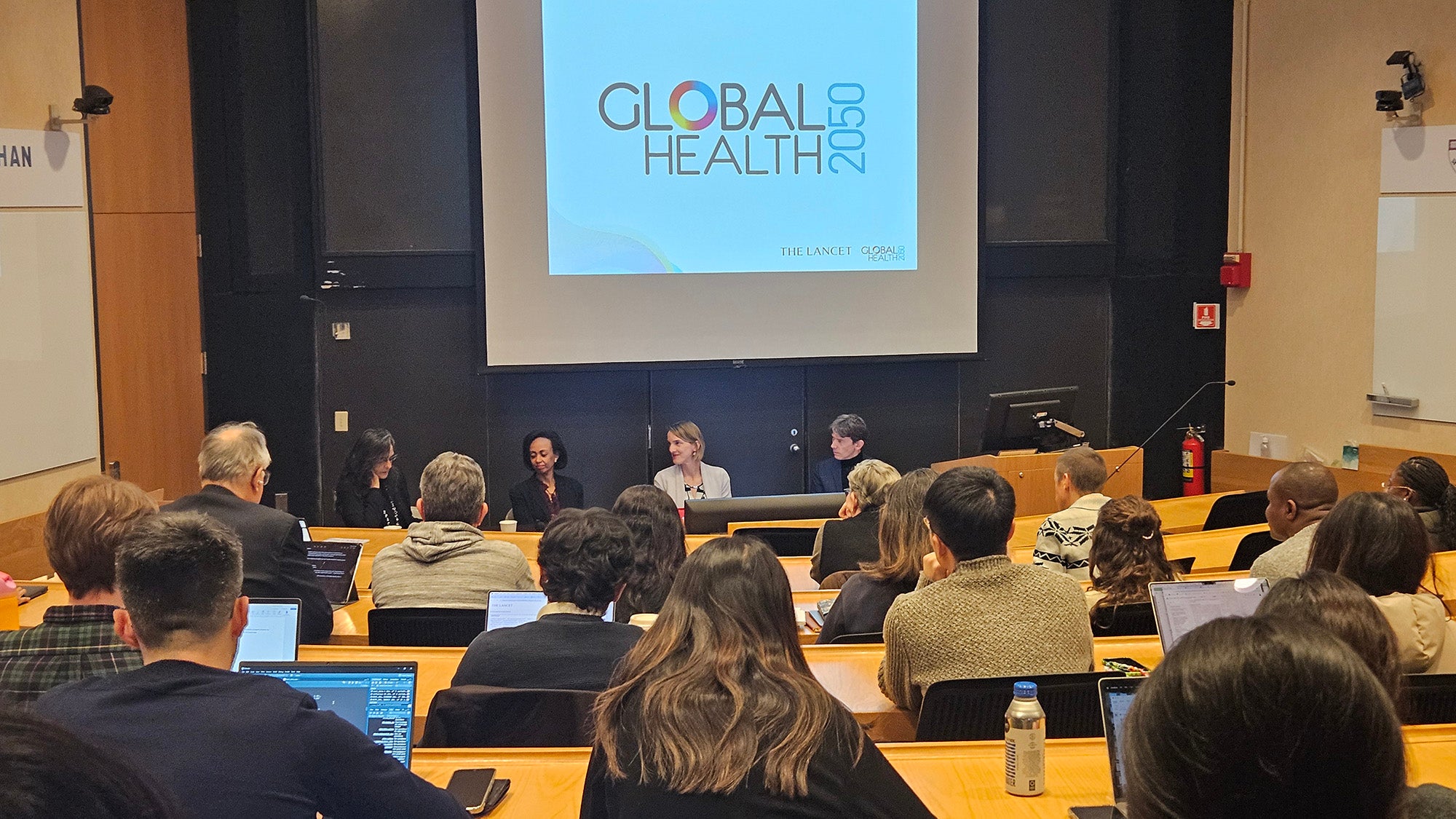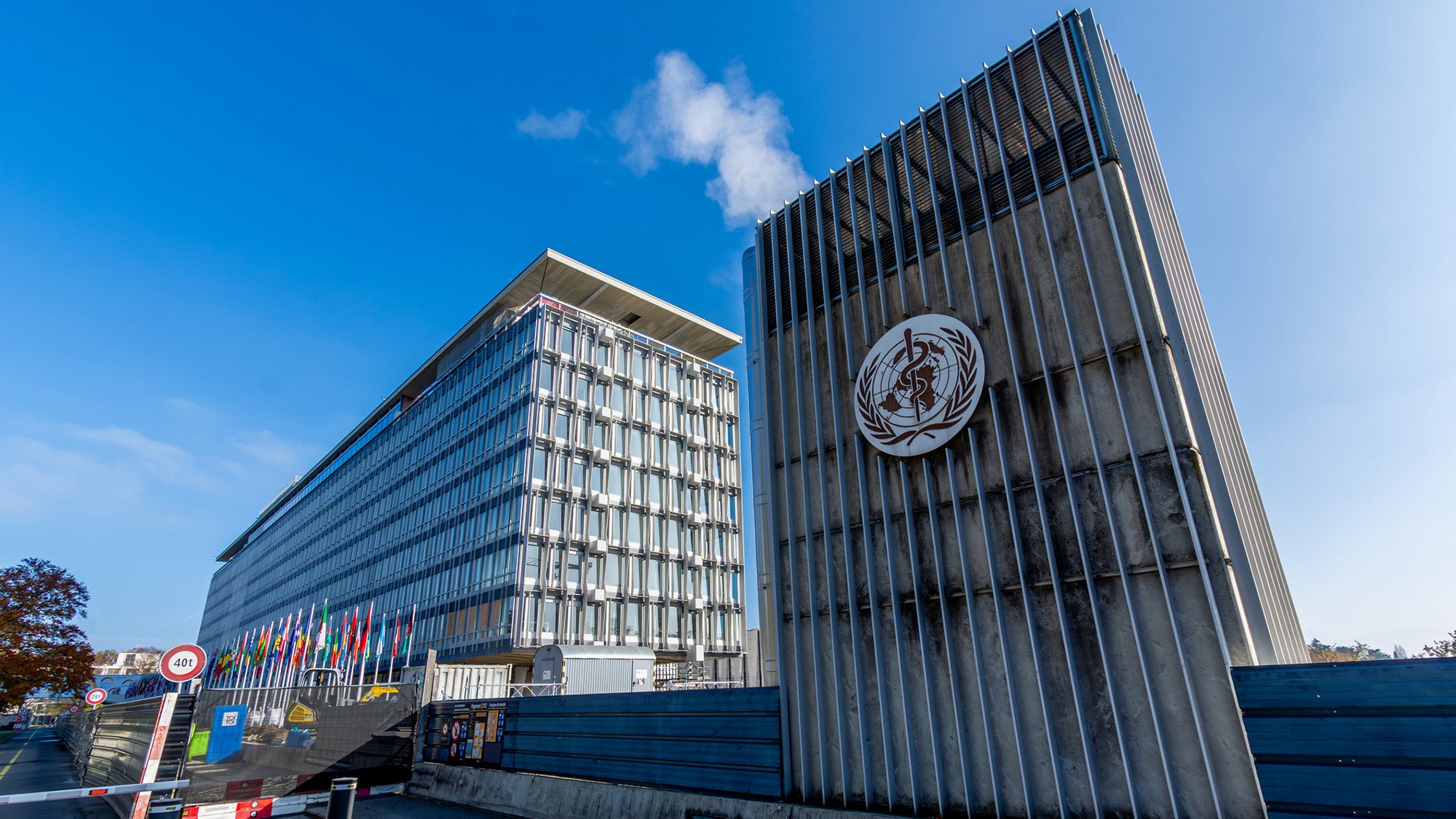How to halve premature death rates by 2050

Countries worldwide, regardless of income level, can halve their rates of premature deaths by 2050 if they focus on a handful of key health priorities. That is the optimistic message of Global Health 2050, a recent report by the Lancet Commission on Investing in Health. Harvard T.H. Chan School of Public Health report co-authors and other faculty members recently gathered for a panel discussion on the findings.
The event was held Dec. 9 in Kresge G3. Harvard Chan School co-authors included Marcia Castro, Lia Tadesse Gebremedhin, Sue Goldie, Margaret Kruk, Ole Norheim, and Stéphane Verguet.
Verguet, associate professor of global health, presented an overview of the history of the Lancet Commission on Investing in Health and shared key messages from Global Health 2050. The report recommends investments in the drugs, vaccines, and diagnostics needed to control 15 conditions that account for the biggest disparities in life expectancy around the world, including tuberculosis, diabetes, maternal conditions, and road injuries.
Members of the commission believe that the “50 by 50” goal is feasible, Verguet said, because of historical experience and scientific advances. Between 1970 and 2000, 37 countries halved their probability of premature death, including seven of the world’s most populous countries. Looking ahead to health technologies that could help even more people live longer, the researchers predicted that by 2050 there will be around 450 new medicines, vaccines, and diagnostics for infectious diseases and maternal health conditions.
Verguet noted that smoking remains the biggest avoidable cause of premature death in many populations worldwide and that raising tobacco taxes is the single most important policy that can help achieve 50 by 50.
He joined fellow panelists Gebremedhin and Mary Rice for a discussion moderated by Castro, Andelot Professor of Demography and chair of the Department of Global Health and Population. Gebremedhin, visiting lecturer and executive director of the Harvard Ministerial Leadership Program, spoke about practical implications of the report from her perspective as a former minister of health of Ethiopia and emphasized the importance of health system strengthening and prioritization.
Although the commission’s proposed interventions did not specifically mention climate change, they would help countries address its challenges, said Rice, Mark and Catherine Winkler Associate Professor of Environmental Respiratory Health and director of the Center for Climate, Health, and the Global Environment (C-CHANGE). “When you invest in the resilience of the health care system, immunization, maternal health, and the management of climate diseases, the more able a community is going to be to deal with the stresses of climate change,” she said.
In her closing remarks, Jane Kim, dean for academic affairs, said, “We know that there are so many competing global health challenges that we are grappling with…but we do have the power to move the needle and create meaningful change.” She said that she hoped students in the audience would get involved, “because the work is ongoing, and it doesn’t slow down, but it’s really exciting and important.”
–Kimberly Ploeg, Amy Roeder


